11 books that have been banned in schools
Talia Lakritz

- Classic books and contemporary young adult novels have been banned in schools.
- Language, sexual content, and even "Satanic" themes have all been the subject of complaints.
Both classic books and contemporary novels have been banned in schools for a variety of reasons.
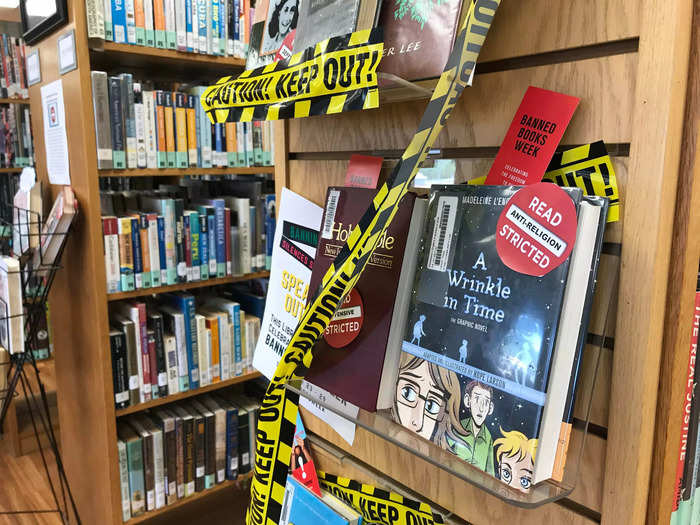
Reasons for banning books range from "profanity" and plotlines "centered around negative activity" to "X-rated" content and "Satanic" themes.
While some books have been reinstated by school districts after pushback from students and faculty, others remain blacklisted.
The American Library Association's Office for Intellectual Freedom tracks the number of complaints that books receive in schools, tallying up the most frequently challenged books since 1990, as well as classic books that were challenged and banned throughout the 20th century into today.
Here are 11 books that have been banned in schools — and what made them so controversial.
The "Harry Potter" series by J.K. Rowling has been banned several times.
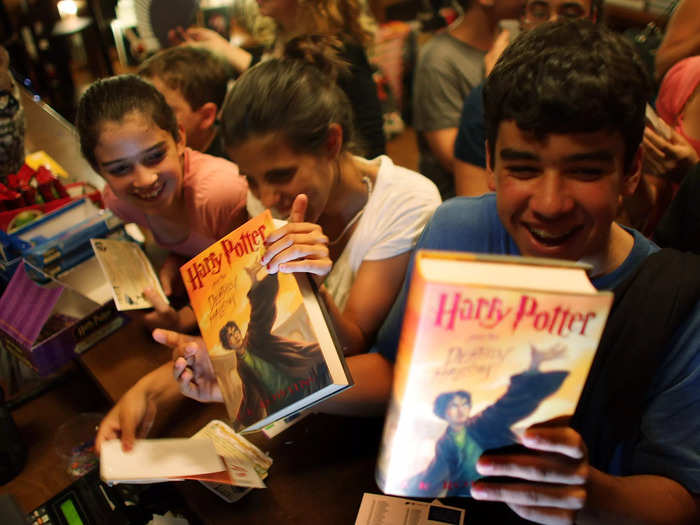
A school pastor in Nashville, Tennessee, removed "Harry Potter" books from the library of St. Edward School before school started in September, according to WTVF. He wrote in an email to parents that "The curses and spells used in the books are actual curses and spells; which when read by a human being risk conjuring evil spirits into the presence of the person reading the text."
It's not the first time books from the series have been banned. "Harry Potter and the Sorcerer's Stone" made the list of the most challenged books in the 1990s even though the first book was only published in the US in 1999. "Harry Potter" books were also the most challenged books in the following decade, with complaints that they were "anti-family," violent, and Satanic.
"To Kill A Mockingbird" by Harper Lee has been banned due to its use of the N-word and other racial epithets, as well as its "adult themes."
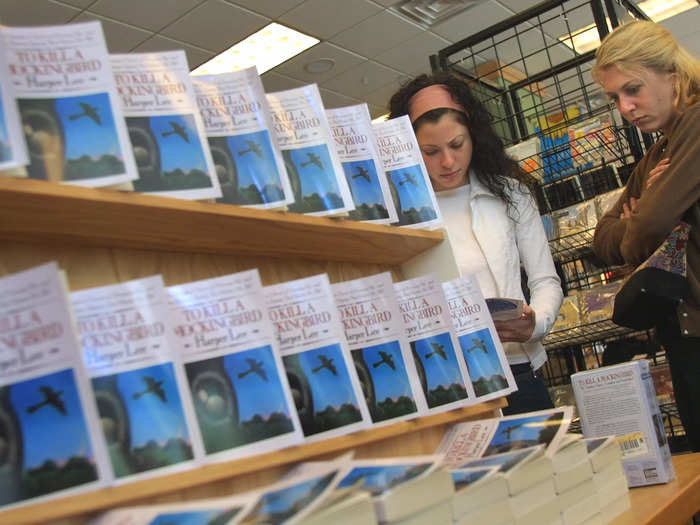
"To Kill A Mockingbird" has been challenged, removed from curricula, and banned in schools across the US due to its use of the N-word and other racial epithets that promote "racial hatred, racial division, [and] racial separation" as well as "adult themes" as Brentwood Middle School in Tennessee put it in 2006.
The book was also dropped from the curriculum at Duluth Public Schools in Minnesota in 2018, although it was still available for students to check out of libraries. Officials said the move came following complaints.
Michael Cary, director of curriculum and instruction at Duluth Public Schools, told the Duluth News Tribune at the time that, "We felt that we could still teach the same standards and expectations through other novels that didn't require students to feel humiliated or marginalized by the use of racial slurs."
It was also one of the 10 most challenged books in schools in 2017.
Like "To Kill A Mockingbird," Mark Twain's "The Adventures of Huckleberry Finn" has been controversial in schools for its language and depiction of African Americans.
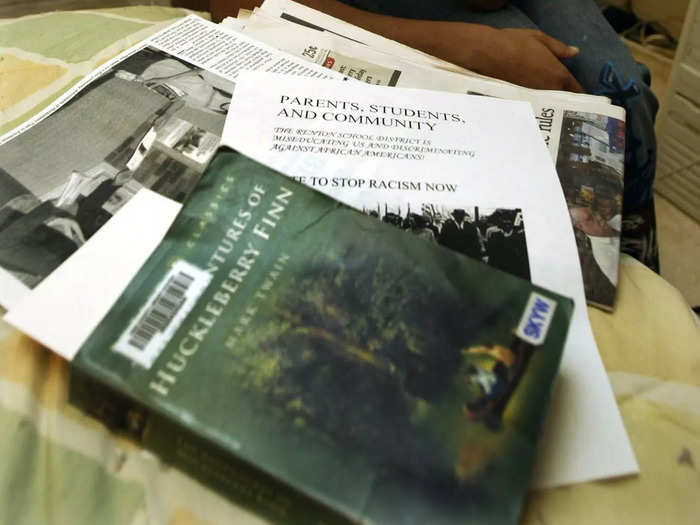
Bans on the book date back to one year after it was published, when it was called "trash and suitable only for the slums" in 1885.
"Of Mice and Men" by John Steinbeck has been banned due to its use of profanity.

"Of Mice and Men" was banned from use in classrooms at Skyline High School in Scottsboro, Alabama, in 1983 and in George County, Mississippi, schools in 2002 because of the book's "profanity."
"Thirteen Reasons Why" by Jay Asher was the most challenged book in schools in 2017.
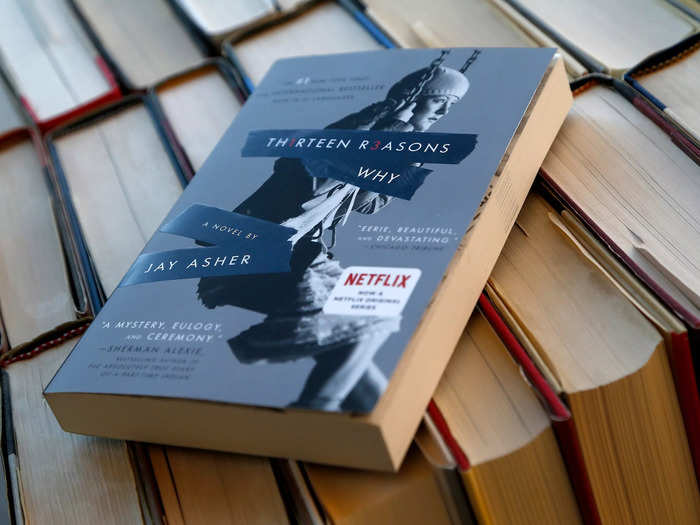
"Thirteen Reasons Why" was the most challenged book in schools in 2017 because its plot revolves around a teen who takes her own life.
The book was published in 2007 but regained popularity due to the 2017 Netflix series based on it. The graphic content in the Netflix series "13 Reasons Why" has also raised concerns among teachers.
"The Hate U Give" by Angie Thomas was removed from a Texas school district's libraries in 2017.
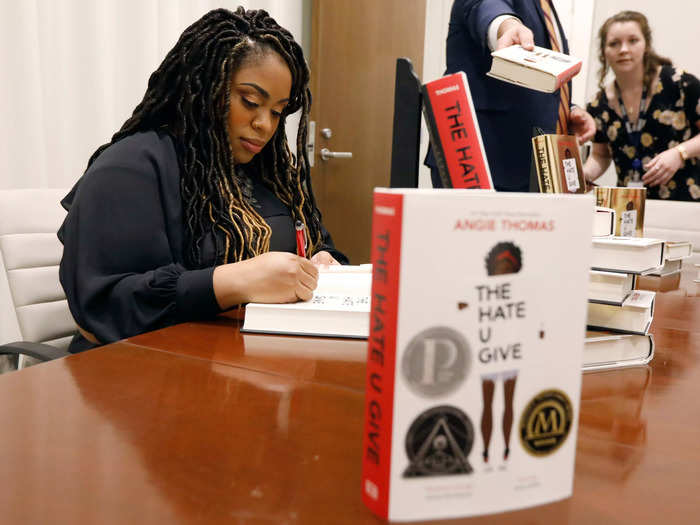
"The Hate U Give" is about a Black teenager who witnesses a police officer fatally shooting her friend. While it wasn't technically banned in Katy, Texas, the school district's superintendent removed it from the district's libraries while it was under review after a parent complained about the book's profanity. Critics said that removing the book while it was being reviewed was a violation of the district's review policies.
Author Angie Thomas tweeted her dismay.
"I'm saddened to hear that a school district in Texas banned #TheHateUGive, but I'm also empowered — you're basically telling the kids of the Garden Heights of the world that their stories shouldn't be told. Well, I'm going to tell them even louder. Thanks for igniting the fire," she wrote.
Fifteen-year-old student Ny'Shira Lundy collected 4,000 signatures in support of the book. The district put the books back on library shelves, but students must have permission from a parent to check it out.
Complaints from the Fraternal Order of Police in Charleston County, South Carolina, also put the book under review at Wando High School due to what the group called its "indoctrination of distrust of police."
"The Catcher in the Rye" by J.D. Salinger has been removed from school reading lists, citing a plot that is "centered around negative activity."
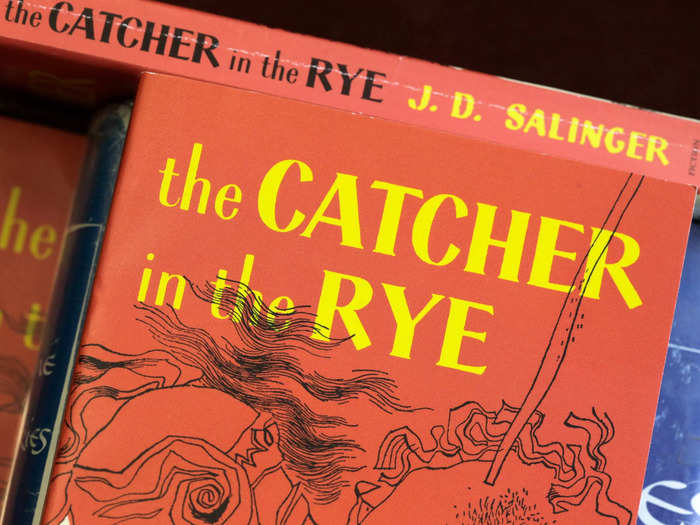
"The Catcher in the Rye" has been challenged and removed from school reading lists many times since its publication in 1951 due to concerns of profanity, obscenity, and the fact that some felt the plot is "centered around negative activity."
The earliest instance of the book being banned was 1960, when a teacher in Tulsa, Oklahoma, was fired for assigning the book to an 11th grade English class. The teacher was hired back after an appeal, but the book remained banned.
The book's place on Missoula, Montana, high school's list was challenged in 2009, but it was allowed to stay on the curriculum.
"The Color Purple" by Alice Walker has been deemed "smut" and "X-rated" by several school districts.
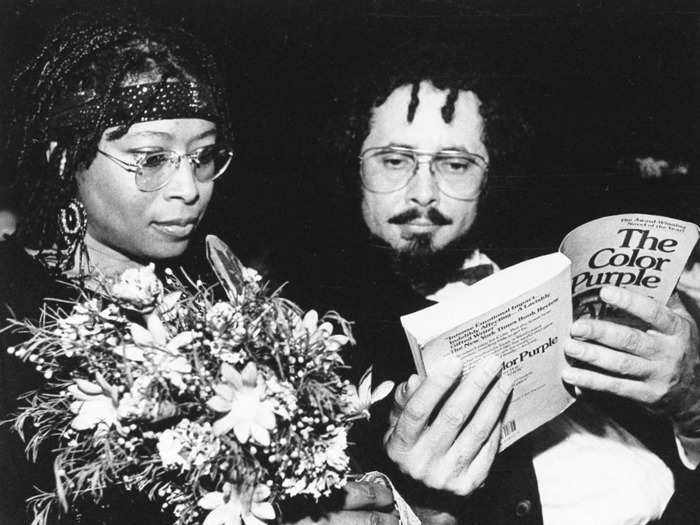
Parents have called "The Color Purple" "smut" and "X-rated" and cited concerns about its "troubling ideas about race relations, man's relationship to God, African history, and human sexuality." It was banned in Souderton, Pennsylvania, Area School District in 1992 and removed from school libraries in Fairfax County and Newport News, Virginia.
A 1987 ban against "Animal Farm" by George Orwell was overturned.
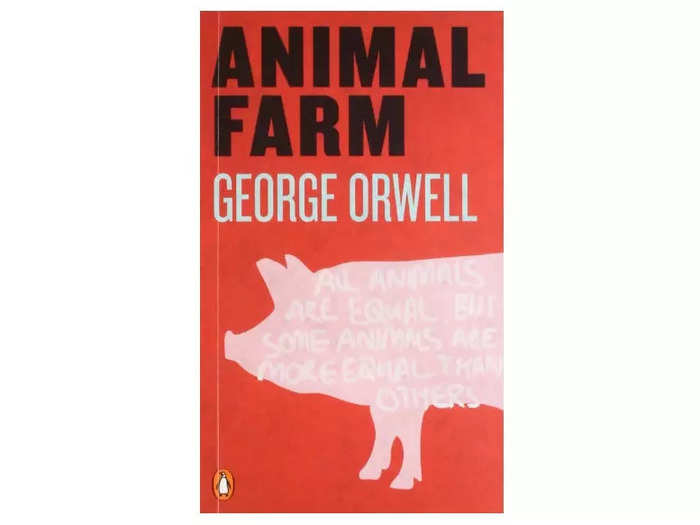
Four middle schools in Bay County and three high schools in Panama City, Florida, banned "Animal Farm" in 1987, but the Bay County school board overturned the ban after 44 parents filed a suit with the district.
"Looking For Alaska" by John Green was the most challenged book of 2015 for "offensive language" and "sexually explicit content."
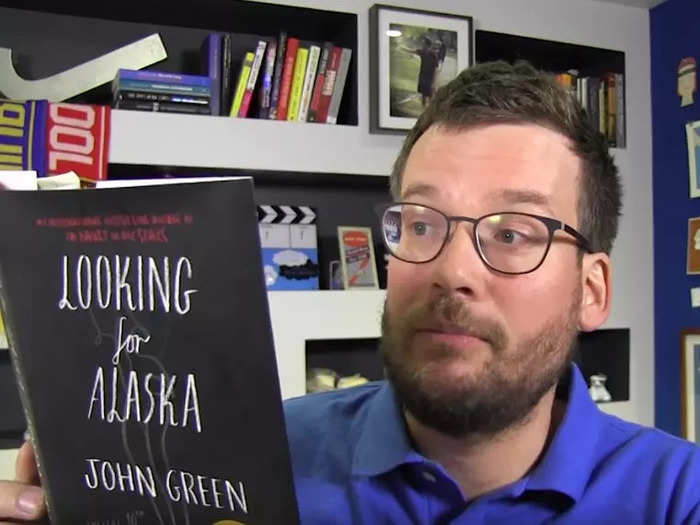
Green made a video on the YouTube channel he shares with his brother Hank responding to the bans.
"Teenagers are critically engaged and thoughtful readers," he said. "They do not read 'Looking for Alaska' and think 'I should go have some aggressively unerotic oral sex.' They also don't read 'The Outsiders' and think 'I should join a gang' or read 'Divergent' and think 'I should jump onto moving trains.' So far as I can tell, that kind of narrow prescriptive reading seems only to happen inside the offices of school superintendents."
"Maus," a graphic novel by author Art Spiegelman about the Holocaust, was banned by a Tennessee school board that called the graphic nature of the book "completely unnecessary."
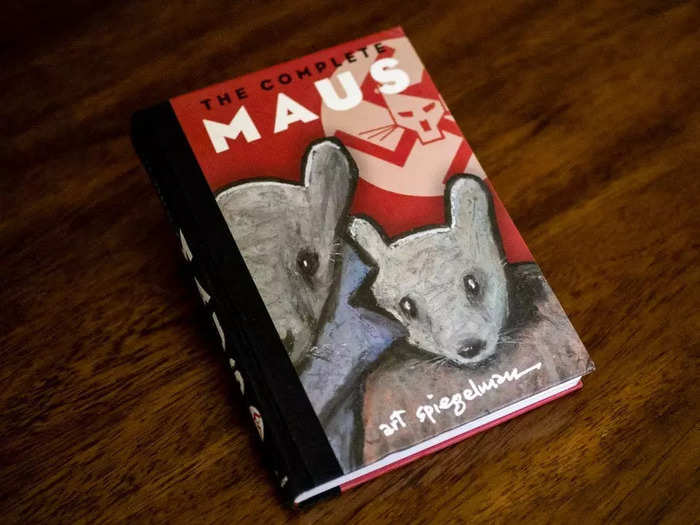
The McMinn County Board of Education in Tennessee elected to prohibit "Maus" from being included in its curriculum, saying it contained "'unnecessary use of profanity and nudity," Insider's Charles Davis reported.
In a statement, the school board said it did not intend to "diminish the value of Maus as an impactful and meaningful piece of literature, nor do we dispute the importance of teaching our children the historical and moral lessons and realities of the Holocaust." However, "We simply do not believe that this work is an appropriate text for our students to study," it said, citing the book's "unnecessary use of profanity and nudity and its depiction of violence and suicide."
The decision prompted a wave of national media coverage, with critics decrying the censorship as a blow to free expression and historical literacy — coming just before International Holocaust Remembrance Day.
READ MORE ARTICLES ON
Popular Right Now
Popular Keywords
Advertisement